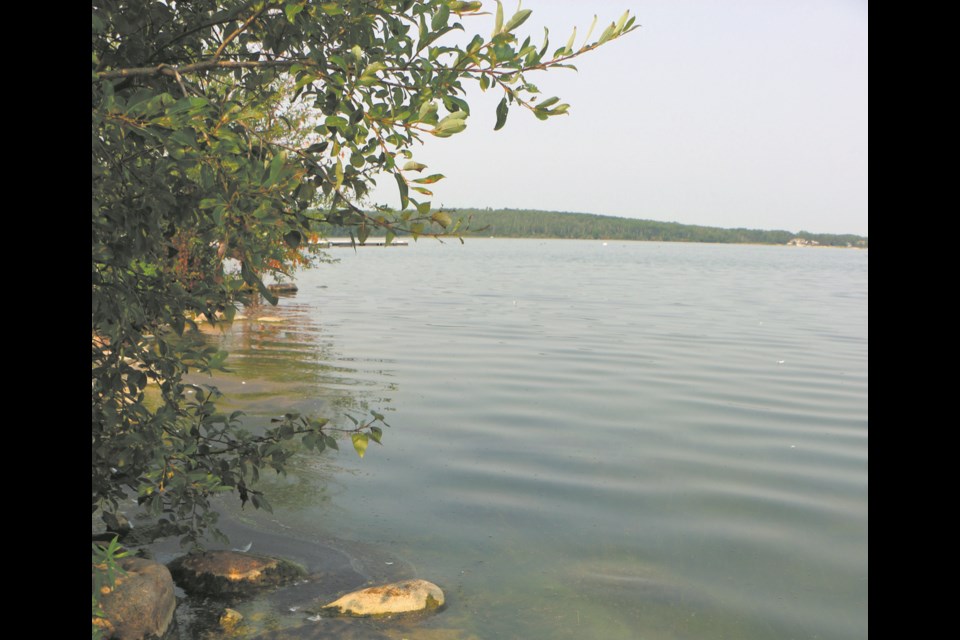BONNYVILLE – The MD of Bonnyville held a public hearing on July 9 to discuss the adoption of the updated area structure plan (ASP) for Moose Lake and Chickenhill lake. Environmental concerns were raised for the Moose Lake ASP, but no one spoke in favour or in opposition of the Chickenhill Lake ASP.
Administration aims to bring updated ASPs into alignment with both the updated Municipal Development Plan, and any relevant documents that the MD has either adopted or that the province has put in place.
“The MD has completed a full review and rewrite of the Municipal Development Plan, which is the overarching document that guides all of the subsequent area structure plans. So, we needed to make sure that as we went through, not only to look at the changes to the context of the plan area, but also changes to the overall policy direction that the new Municipal Development Plan has put forward,” said Chris Ulmer from Urban Systems – an MD hired engineering firm.
The Moose Lake ASP document claims to “Promote development that is compatible with the lake environment, and existing residential and recreational land uses.”
Both ASPs feature a strong inclination toward environmental protection, public feedback, sustained recreational opportunities, and area appropriate development.
The ASPs have not been updated since the 1980’s.
Moose Lake public hearing
Resident Audrey Campbell raised environmental concerns about the Moose Lake ASP saying that she finds the policies substantial, but worries about implementation and enforcement.
“We have seen significant change in the watershed behaviour with the development of subdivisions around the lake. Drainage is not maintained by the storm water flow routes, and we are seeing saturation of soil and discharge into the lake at a greater rate than prior to the establishment of said subdivisions. I do not know how much more development the lake can sustain,” said Campbell.
Campbell raised concerns about herbicides and pesticides, land clearing, and individual storm water management impacting runoff. Campbell notes her observations of the effects subdivisions are having on the lake.
“We've been there now through three cycles of the lake going up and down and wet and dry years... we're seeing more runoff coming down to the front of the lake and into the lake and that has ramifications not only for rainwater runoff and snow melt runoff but also for what people put on their lawns and pesticides,” said Campbell.
Campbell suggested an economic impact study on Moose Lake to understand the economic importance of protecting the lake's health as a recreational asset.
Ulmer explained that key aspirations for the area are long-term protection of the health of the lake and development compatibility. Proposed developments must demonstrate their impact on the environment and existing developments.
The Moose Lake ASP aims to foster developments that will support the growing residential area into becoming “more of a complete rural community with some of the other commercial types of uses that would support the residents,” said Ulmer.
Ulmer spoke about resident retention and attraction, with a focus on increasing services and maintaining connections and access to the lake.
MD of Bonnyville Coun. Ben Fadeyiw made a point to acknowledge the complexity of the ASP document
“I ask that if there's still some questions from the audience...t o do a sidebar outside and just fill people in with the rest of it. It gets a little complicated. Even after me reading it for hours and hours, it's still clear as mud.”
Campbell had questions that exceeded the scope of a public hearing, so she was met outside the public hearing with councillors and administration to further discuss her questions.
Chickenhill Lake public hearing
Ulmer presented a similar presentation for Chickenhill Lake and stated that, “Objectives for Chickenhill Lake are largely the same, but given some of the unique components with the recreational areas looked at, they reflected some opportunities to promote the recreational areas at the lake and to provide additional opportunities within the camping area.”
Ulmer expressed the ASPs commitment to ensure “sustainable opportunities to access the lake but not at the expense of the health of the lake itself.”
The ASP aims to identify and preserve environmentally significant areas, given the sensitive areas adjacent to the lake, and to protect the watershed.
The ASP for Chickenhill lake recognized the lake as a tourist attraction and recreational area, but the focus on the area itself is to keep it small and rural.



